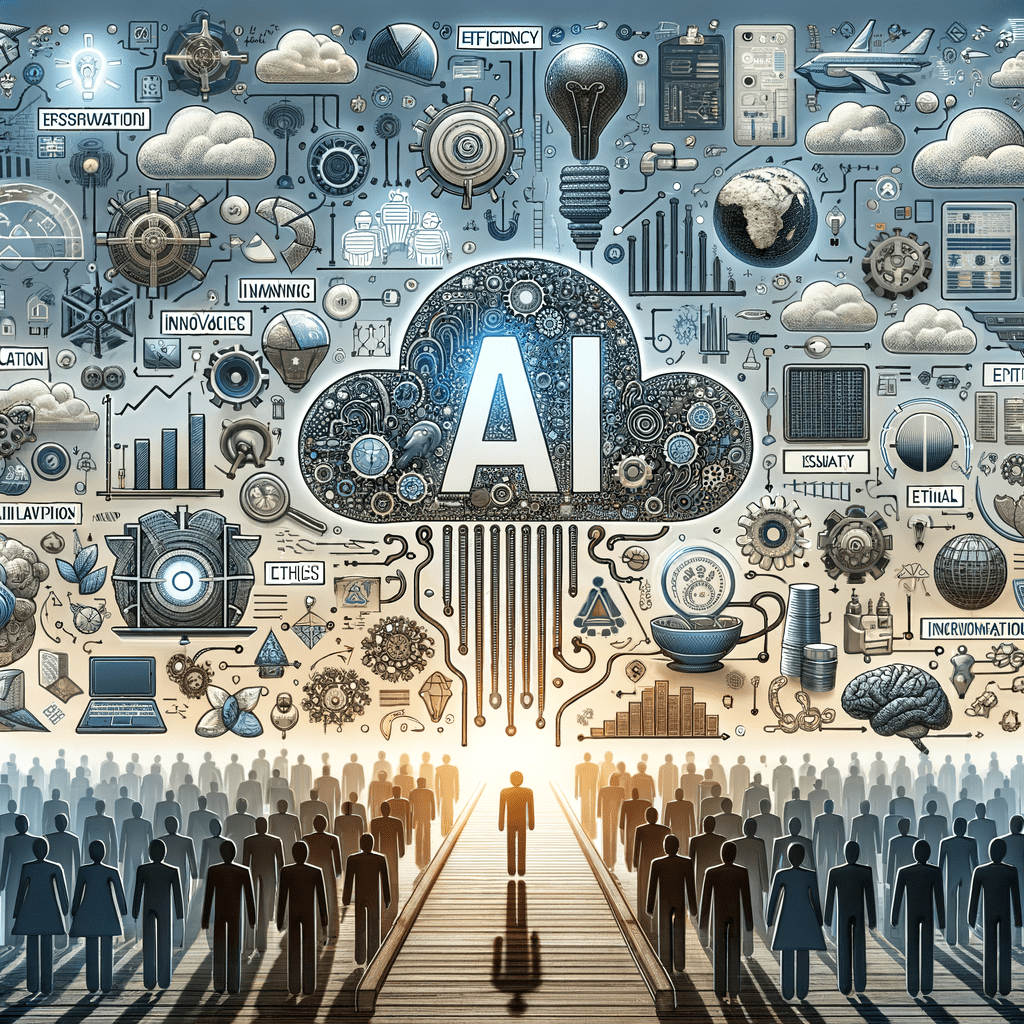In today’s competitive market, staying ahead is crucial. AI in product development has emerged as a powerful tool. What does this mean for your business? Let’s explore.
AI empowers small and mid-sized businesses with advanced product development tools. These AI tools are rapidly evolving to meet market demands.
AI-Powered Product Development: A Game Changer
With over a decade in marketing, I’ve witnessed product development evolve. Traditional methods often felt like guesswork. But AI has changed the game, enabling data-driven decisions and faster iterations.
McKinsey reports that 84% of executives believe innovation is crucial for growth. AI provides a competitive edge for sustainable development, helping companies streamline processes and adapt to evolving market demands.
How AI is Transforming Product Development
AI analyzes large language models and vast amounts of data to reveal hidden patterns in customer feedback and market trends. This provides actionable insights to improve product performance and achieve faster iterations.
AI algorithms and predictive analysis can avoid costly mistakes by identifying potential issues early on. Studies show nearly 40% of new products fail without proper market research and prediction.
AI also automates repetitive tasks. This frees up development teams to focus on human creativity and innovative product development. This improved operational efficiency also contributes to a company’s overall intellectual property.
As a result, businesses achieve faster product development cycles. McKinsey research indicates 20-40% faster time to market, with a 20-30% drop in costs.
Real-World Examples of AI in Product Development
Companies are leveraging AI in product development with tangible results. BMW uses AI to optimize vehicle assembly. Their AI systems identify flaws, resulting in significant cost savings. This saved over $1 million last year alone.
PepsiCo is another example of integrating AI into their product development lifecycle for greater efficiency. AI helps optimize product designs and predict consumer expectations, allowing PepsiCo to adapt to the evolving market.
Netflix leverages data-driven AI and machine learning (ML), increasing revenue from $1.36B to $26B. Netflix’s CEO emphasizes the competitive advantage AI provides.
Key Use Cases of AI in Product Development
- Identifying User Needs: AI analyzes customer feedback and user stories to identify unmet needs. This allows businesses to prioritize valuable features, increasing customer satisfaction. This approach also reduces development costs by focusing on what matters most to the user.
- Manufacturing Enhancements: AI algorithms can identify and resolve production issues in real time. This leads to improved workflows, optimized resource scheduling, and minimized production problems.
- Elevating Product Security: AI-driven monitoring safeguards against unauthorized access, protecting sensitive data and intellectual property. These AI systems can detect and respond to threats more effectively than traditional security measures, enabling proactive risk management.
- Quality Assurance: AI-powered software testing helps ensure compliance with requirements. AI can detect quality issues before product launch, leading to higher quality products and reduced customer support costs. This improves customer experience and builds brand trust.
FAQs about ai in product development
How is AI used in product development?
AI assists in all stages, from idea generation and design refinement to market demand prediction. This leads to better products, cost reduction, and faster time-to-market. AI enhances decision-making across the product lifecycle.
How is AI used in product design?
AI automates design tasks and analyzes user interactions. This accelerates the design process and improves product usability. AI contributes to more user-centered designs, which boosts customer engagement.
How is AI used in products?
AI enhances functionality and user experience. Examples include personalized recommendations and smart assistants. AI enables predictive maintenance and allows products to anticipate user needs. Data-driven analysis via AI and Machine Learning has become increasingly critical for businesses.
How is AI revolutionizing product development?
AI fuels data-driven decisions throughout the product lifecycle, from concept creation to market analysis. AI systems use Natural Language Processing (NLP) to analyze customer feedback and identify preferences. AI agents play a role in improving the efficiency of the entire product development process. AI-powered automated testing shortens usability testing cycles, which leads to faster iterations and product improvements.
Concluding Insights into AI-Driven Product Innovation
AI in product development is essential for businesses. It empowers companies to innovate strategically, create better products, reduce costs, and increase revenue. Integrating AI into product development helps businesses improve product quality and adapt to changing market conditions. Companies leveraging AI often see increased profits and improved market penetration by up to 15%.
Embracing AI is vital for long-term business success. Neglecting AI in product development could hinder growth and competitiveness in today’s rapidly evolving market. The benefits of AI are evident, and its impact will continue to grow in the coming years.






